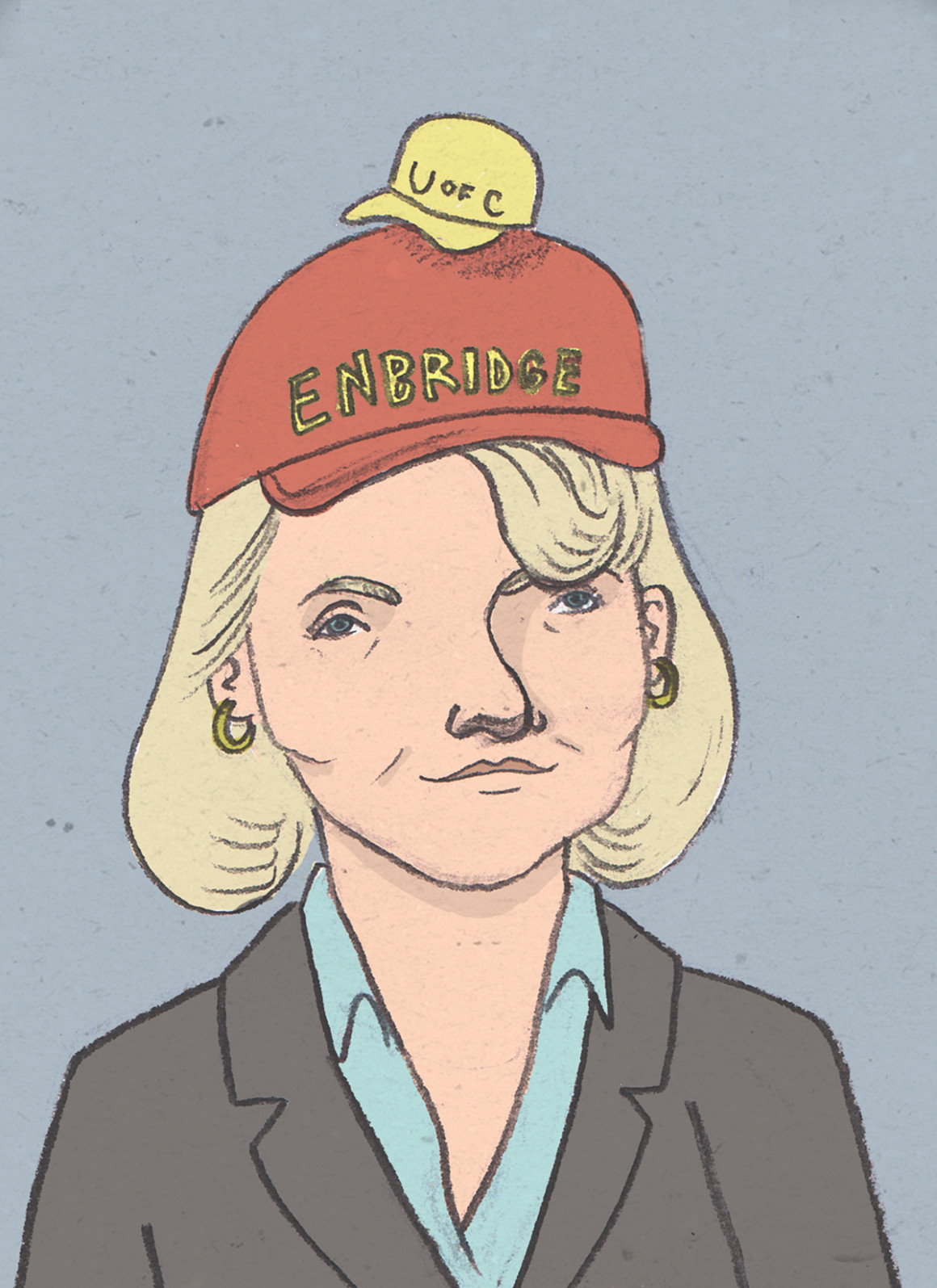
Albertan universities need a conflict of interest policy
The University of Calgary Board of Governors has launched an independent review into the creation of the Centre for Corporate Sustainability. The stated purpose of the review is to “determine whether there was any breach of university policies or procedures then in place or improper conduct in connection with the creation and operation of the centre.”
The centre has been mired in controversy since a CBC investigation found that Enbridge had considerable influence in its creation. Enbridge made a $2.25-million, 10-year pledge to the centre which bore the pipeline company’s name until 2014.
The CBC also claims university president Elizabeth Cannon — a director of Enbridge Income Fund Holdings at the time — was aware of the issues surrounding the centre.
Whether the independent review finds Cannon acted inappropriately will very much depend on its definition of “improper conduct.” From the emails obtained by CBC, it seems easy to believe.
Cannon has defended herself by saying she was “absolutely wearing her university hat” when dealing with the centre. With this comment, Cannon would have us believe she can “change hats,” switching back and forth between her role as university president and her role as a board member at Enbridge.
But conflicts of interest don’t work like that. Worries, desires and experiences from one area of our lives inevitably influence all of our decisions. This is as true for president Cannon as it is for every student at the U of C.
Cannon’s involvement with Enbridge while the company attempted to influence an academic research centre at the university was a clear conflict of interest, and all of Cannon’s talk about her hat collection won’t change that.
So where should we lay blame? Why wasn’t this conflict of interest dealt with before it became a serious problem? Some of the blame lies with Cannon, who should have known the situation was inappropriate. If Cannon isn’t willing to devote herself fully to running this institution — in exchange, of course, for a base salary of $480,000 — then perhaps she is better suited to the private sector, where she can sit on as many boards as she likes.
There is also a lack of policy surrounding the issue, and there are no rules in place that bar university presidents from sitting on corporate boards.
If the U of C wanted to show some leadership on the issue, it would write its own policies stopping administrators from sitting on corporate boards. Of course, since administrators benefit directly from a lack of policy on this issue, that’s unlikely to occur.
Legislation by the province is another, more probable solution. Universities are public institutions largely funded by the government, and provincial ethics rules for university administrators are long overdue. The Enbridge affair is a perfect example of why such guidelines are necessary.
Regardless of the review’s outcome, the provincial government should act on the issue to ensure this ugly situation does not repeat itself in the future.
Gauntlet Editorial Board
